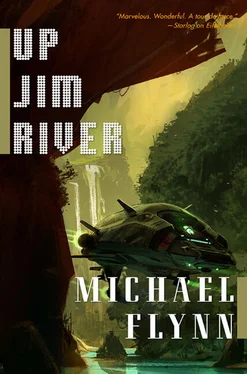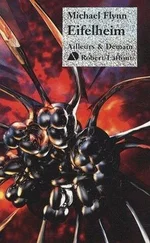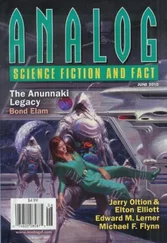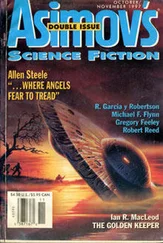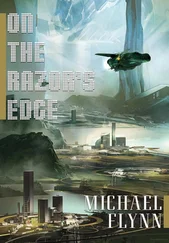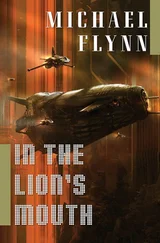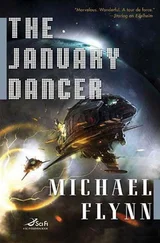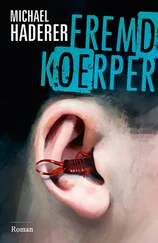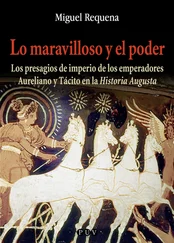Tell me something I did not know . But she smiled. “I did not ask how I might not reach the top, but how I might.”
The man waved vaguely. “There is a trail. We will leave the yaams.”
The yaams were a strange sort of hairy jamal, peculiar to the high mountains. They were ill-tempered and spat a lot; but they were surefooted on mountain trails. A raft bearing two of them was being poled up the Multawee and would probably arrive in the morning.
It is no favor to abide by the terms of the agreement , she thought, but aloud she said, “Your openhanded generosity is widely known.”
“And may the Weird be less strange on your journey.”
“You’re not coming with us.” She did not make it a question.
“It is not our journey. Our journey is to the lower lands, where glory and pasture may be won. The Emrikii are savages and poor, and they do not know honor. There is no glory in entering their country. We will leave you one bag of the gold with which to bribe them, and the food of your own that you brought with you.”
“Generous of him,” Teodorq said sotto vocee.
He is afraid of the Emrikii , Méarana thought.
They built a campfire and spent a somber night in its flickering glare. It was nearing the time when Captain Barnes expected to return with Blankets and Beads . It would be good to return to the world of baths and books. Paulie and Teddy got into an argument over who had done the most work unloading the canoes and nearly came to blows, save that Donovan separated them. Sofwari, his equipment smashed in the Roaring Gorge, his notes reduced to what he had already loaded in his pocket brain, had fallen into a morose lassitude and hardly bothered swabbing cheeks anymore. Some gang of savages would destroy them, he told her, before they could be analyzed. There were no more honeyed words, no more clever insights. Billy said little, and watched everything with a glum fatalism.
Méarana sang a little, but she was tired and pleaded sleep. She went off to the side and sat just at the edge of the firelight, where she took her medallion out. She had had to make a new thong for it after it had been ripped from her neck by the Harps in the Roaring Gorge. They are up there , she thought. The people that made this medallion . She thought of how many hands it must have passed through to reach Lafeev’s men in the city of Riverbridge on the banks of the broad Aríidnux.
Tomorrow , she thought, gazing up at the sky-rimmed mountain edge.
The raft arrived at midday and the yaams were loaded up for the climb to the City on the Hill. Crow-feeder took his leave. “May the Weird grant that you find your mother.” Then he went to Skins-rabbit and said, “I grant you your freedom, Skins-rabbit, and bid you give them my kiss of friendship.” And he took her in his arms and placed his lips on hers.
Then all was quiet once more. The wind soughed through the pine needles. The paddles of the departing canoes dipped and splashed. The Longfoot crashed and rumbled. High overhead, an eagle screeched. Suddenly Méarana felt as isolated as she had ever felt in her life. She shivered in the mountain breeze, and adjusted the any cloth in her jacket to pad up a bit against the chill.
She and Donovan went to Skins-rabbit, who stood on the riverbank looking after the departing Harps. When the last canoe had turned the bend and vanished behind a stand of hop-willow, she spat into the river.
Méarana had not expected that she had loved her captors. It was a hard world, but each man had his strengths and his flaws. There were none, as her mother had once told her, entitled to throw the first stone.
But that did not mean, she had always added, that there were none who deserved to be struck by it.
“Come with us, Skins-rabbit,” said the harper. The girl would understand nothing but her name, which Méarana had learned to pronounce in the tanga cru’tye .
But the girl tossed her head and the twin black braids flew like whips. She said something in a vehement tone and reached to rip off the thigh-length flaxen shift she wore. Méarana stayed her hand and she and the girl locked eyes for a time. Then Skins-rabbits made a grim line of her mouth and dropped her hand.
“I think we get the message,” Méarana said. “What is it, Donovan?”
“I think I know what she said. When you called her Skins-rabbits, I think she said, ‘My name is Chain Gostiyya-Uaid.’”
“My earwig was silent.”
“It wasn’t my earwig. It was the Pedant. It was a language I learned…I don’t know when.”
“You never talk about your youth.”
“If I ever learn I had one, you’ll be the next to know.” He said something to Chain in a tongue alternately liquid and guttural. Chain frowned, listened intently, and opened her mouth to reply. But then she shook her head and shrugged.
They walked back to the rest of the group, who had donned their backpacks and were waiting with the yaams. “It will come to me,” Donovan said, though he did not sound certain. “Perhaps I once learned a language that was cousin to hers.”
* * *
Chain led them to a trail that switchbacked up the massif. It was a pitiless trail, at times reduced to hand and toeholds carved into the face of the rock, and at other times to ledges that wound narrowly along the precipice. It was not a trail to be walked lightly. At one point, Billy slipped and would have fallen but that Donovan seized his arm and pulled him back up.
During the climb, Donovan mulled over the tantalizing half-familiarity of Chain’s language. The Treasure Fleet had set out from Terra well before the Cleansing, and her people would have spoken the Tantamiž lingua franca of that age. Yet, there had also been the Vraddies, the Zhõgwó, the Murkans, and the Yurpans with their Roomie underclass…
In the Age of Audio, languages changed more languidly than in the Age of Print. But while recordings preserved the classical pronunciation for longer periods, nonetheless consonants softened, vowels shifted, declensions dissolved. Among the descendants of the Cleansing, they had changed one way; among those of the Treasure Fleet, in other ways. In the Old Planets, different languages had been thrown together with the deliberate intention of hindering communication among the refugees, so the tongues of the Periphery were more thoroughly blended than those of the Wild. That was why he could understand occasional words, but not quite the whole sense.
The Sleuth was working on it.
Sometimes he missed the voices in his head. There had been a community in the cacophony, despite all their quarrels. Now and then, he heard a whisper of the Pedant’s pompous ruminations, of the Sleuth’s snide deductions, of the Inner Child’s high-pitched worries. But now he had the sense that he was ruminating and deducing and worrying—that it was the same “I” even when done in parallel by separate portions of his mind. He even missed that sly old reprobate, the Fudir.
“Told you you would miss me when I was gone,” his lips said.
And Donovan smiled as he climbed.
Then they were over the lip of the mountain and moving down through an alpine forest. High-crested light-blue birds cocked their heads at the parade and scolded them in shrill cries. Does with fawns bounded away through the dark beneath the canopy. The path was well-worn, but they saw no sign of the people who had worn it.
Then the forest opened out onto a broad, high meadow, and Donovan saw a checkerboard of regular, well-kept fields and small homesteads bordered by stone walls and rail fences. The houses crouched under low-slung turf roofs; and the smoke that curled from the chimneys drifted toward the ground. Men and women halted their plows with sharp commands to their himmers and stood to watch the passing strangers. Each had a long gun to hand, and some cradled theirs.
Читать дальше
